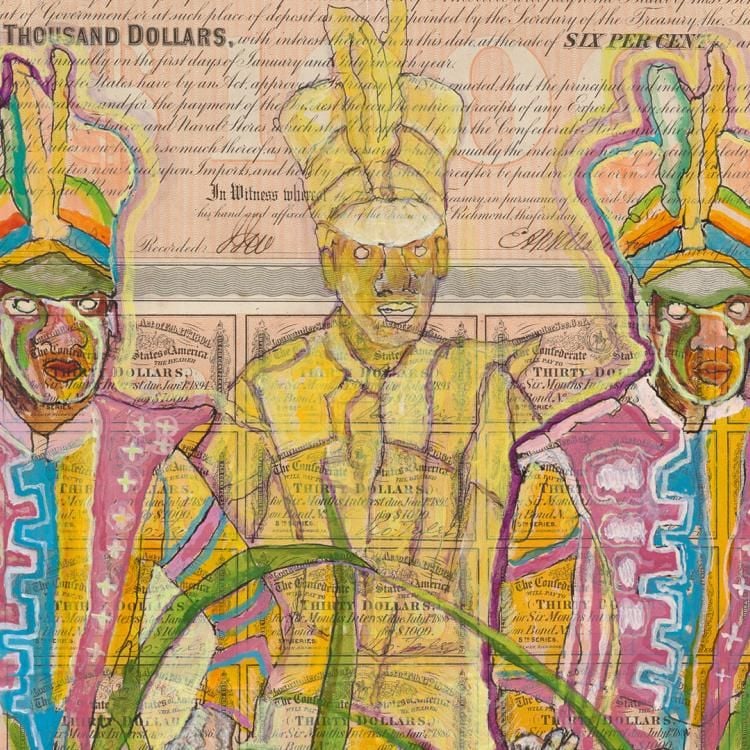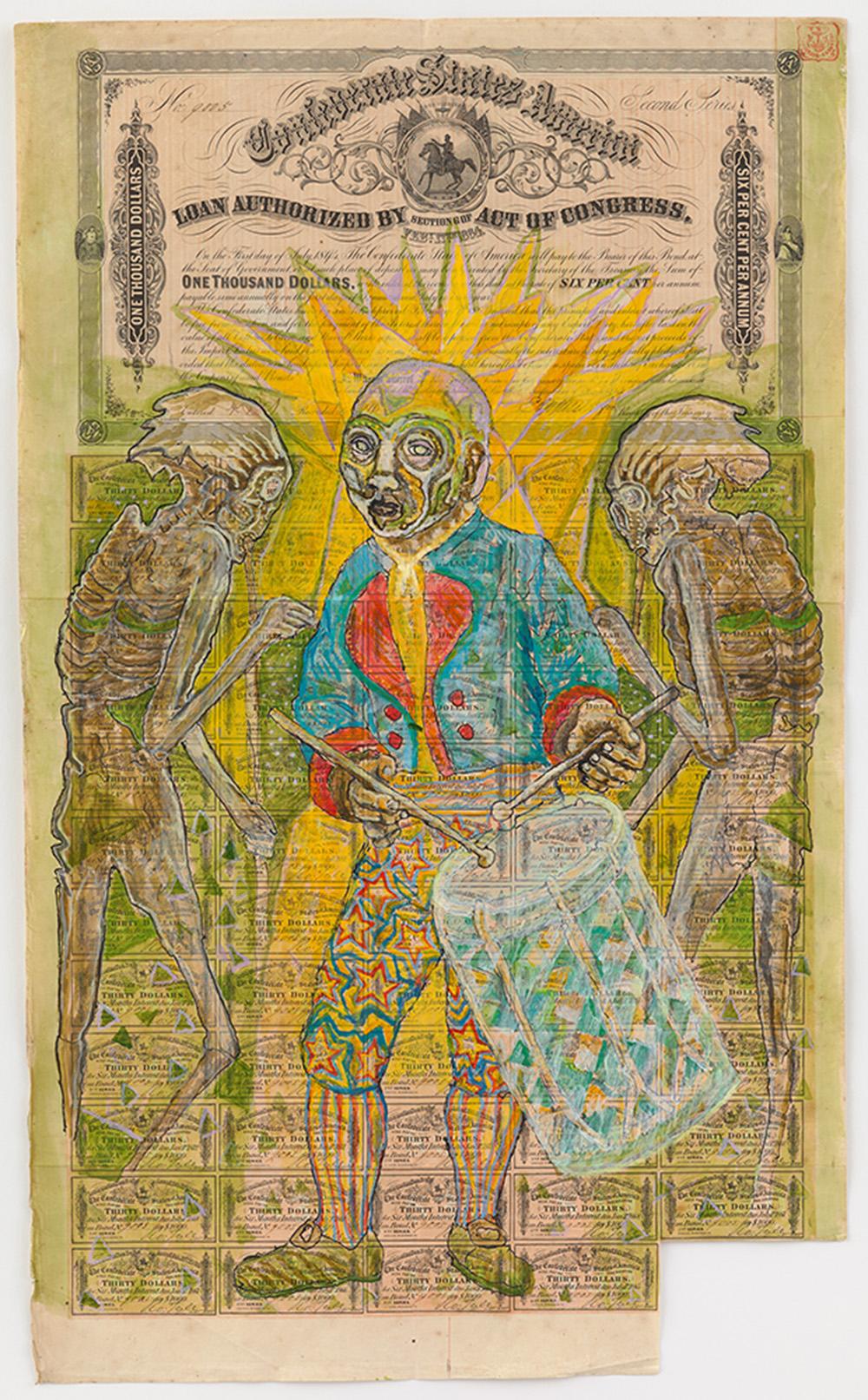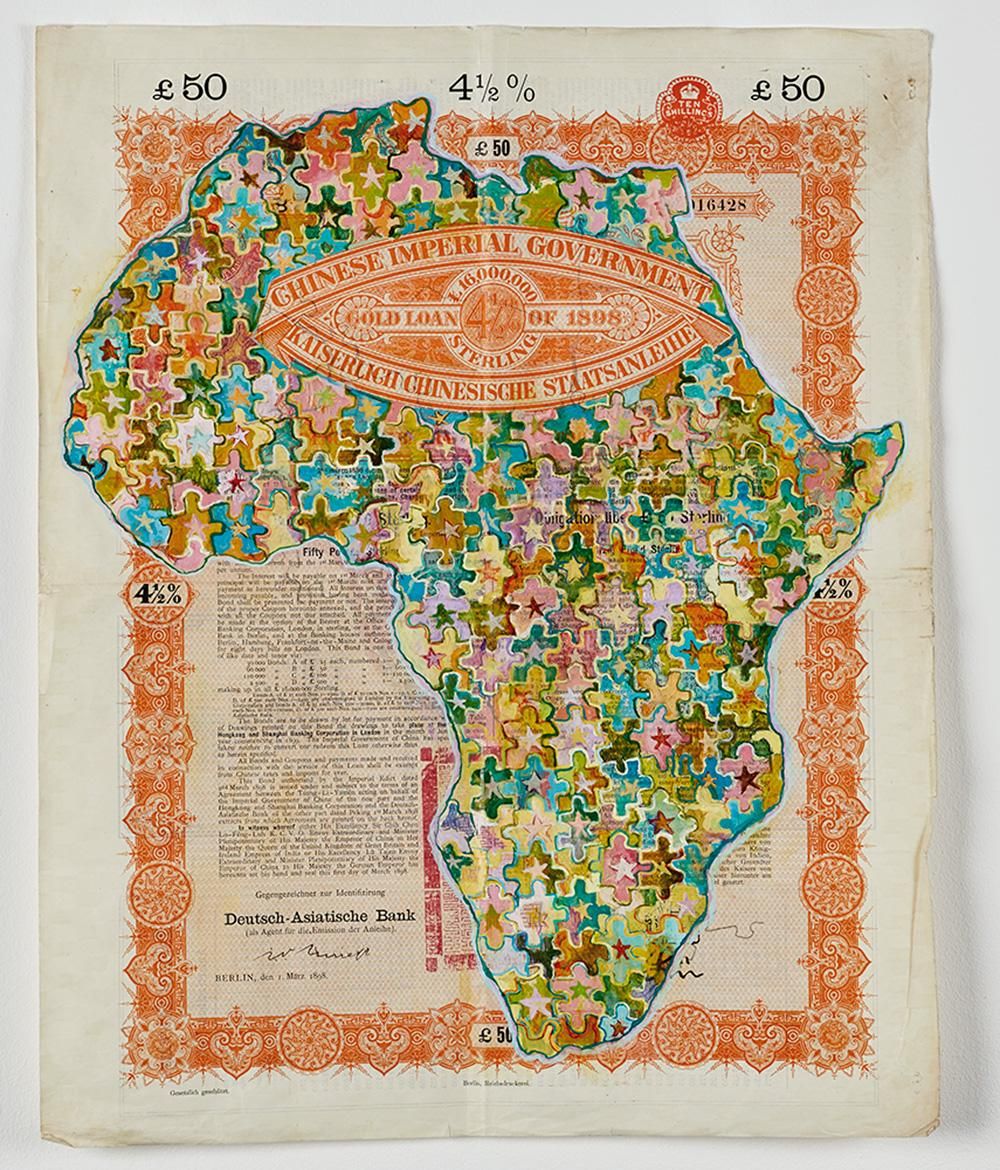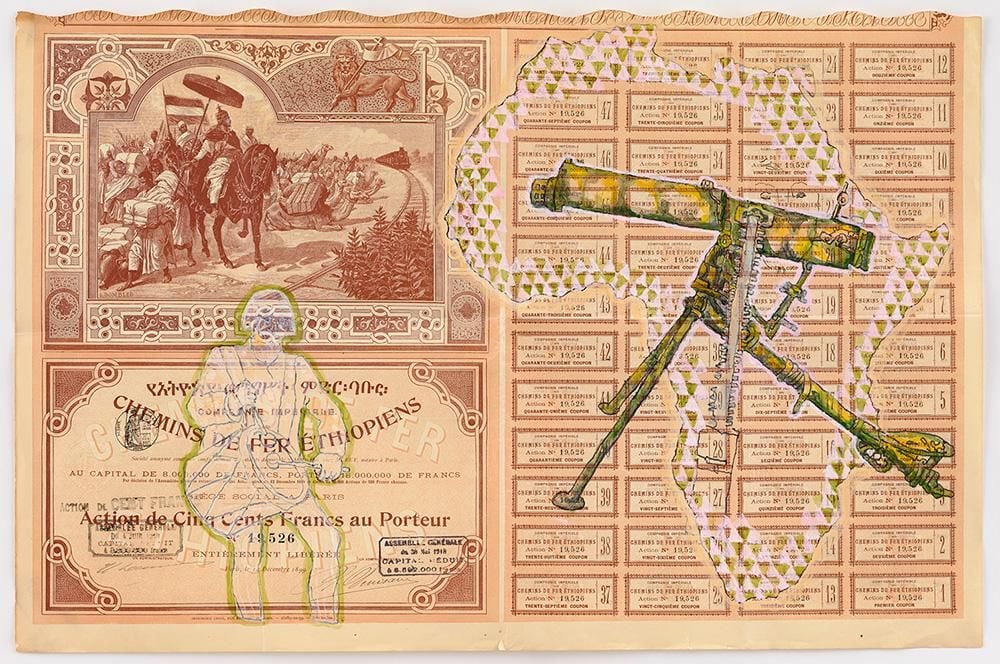Hew Locke: what have we here? is open until 9 February 2025.
Hew Locke's groundbreaking exhibition has sparked debate, conversation and creative response. Read three talented poets' reflections on Hew Locke: what have we here?
Hew Locke's exhibition is a striking exploration of the relationship between art, institutions and empire, as exemplified both by objects in the Museum collection and Locke's own specially commissioned work. It has created a wave of opinions among visitors, and sparked much-needed and difficult conversations not just within the walls of the Museum, but the wider art world.
Poetry is a medium which often helps to express complex and ineffable ideas, and to explore challenging subjects. We invited award-winning poet Raymond Antrobus to curate a line-up of poetry performances for a live poetry event on 31 January 2025. In this blog, three of the talented poets from the event have shared some work (as well as their working process) in response to the exhibition, giving readers a sneak peek of their upcoming performances.
The poems are accompanied by images from Hew Locke's 'Share' series from the exhibition, in which he explores empire and the 'history and movement of money, power and ownership'.
Kareem Parkins-Brown
Hew Locke said the 'formation of nationhood coming out of difficult pasts' was something that's always interested him: the way nations create themselves and their identities, and how one of the ways they do this is through objects.
I remembered a song we used to sing in Church about going to the enemy's camp and taking back stolen goods. The lyrics of the song, paired with the contents of Hew Locke: what have we here? suggest to me that if we had one target to blame all of our issues on, i.e. a devil, by defeating them we would create a new nation.
Part of the job of poetry is to name new futures to walk into. I began exploring what kind of objects I'd create in my new nation, almost taking on a mythical stance, with literal changes in the world happening due to the removal of the devil. But as always there is a threat of the devil returning with a different face or name.
Tea Leaf (excerpt)
I went to the enemy's camp and I took back what they stole from me
he's under my feet, he's under my feet, satan is under my feet
– Old Church song
You were in Eden, the garden of God; every precious stone was your covering
– Ezekiel 28:13
next time try rubbing chilli paste and bleach in his eyes
and watch the sunshine turn on and off
or aim for his head so the sky changes like dreaming cuttlefish
when you stomp on his belly you will feel a rumble
in the ground that is not the graves bubbling but the oceans in labour
pushing your new land to the surface
a brand new nation just for us, where we're born
with wigs that change style as you sneeze
and give every child a gold necklace with a tamarind pendant when they turn 18
if you cut the devil's head off, catch it before it floats off
and grows another body
Princess Arinola Adegbite
Locke's exhibition and the excerpt of my poem The Mother I Never Met intersect in their honest interrogations of historical displacement and cultural fragmentation. The narrative excavates the alienation inherent in diasporic experiences where the English language becomes a colonial inheritance and homeland a fading memory. Through nuanced reflection, the poem articulates the visceral trauma of disconnection – a rupture embedded in the violent divisions created by imperial conquest. The metaphorical 'Mother' embodies not merely a geographic area but the intricacies of historical dispossession likening the grief to the relationship between a daughter that has never met her mother. My text connects with Locke's exhibition by challenging Museum practices that have traditionally objectified and decontextualised colonised histories, rendering the narratives of the global majority as archaeological artefacts rather than living, breathing stories of resistance and hope.
The Mother I Never Met
I was persuaded out of my own skin,
my own language, my own mind.
Did anyone tell you that pain is a mouth?
How pain eats you.
I am full on all things visceral –
the safest place on earth is my mother's house
except for her own people.
Africa handed her guests
petals yet she was greeted with pistols
and there is so much I want to say to her.
But I do not speak the same language as my mother,
she speaks and I cannot speak back.
I did not inherit the silk, the gold, the fat of that continent.
Francis-Xavier Mukiibi
Whilst viewing the exhibition, I was drawn to Locke's nods towards the complex histories of these artefacts, the knowledge that even visibly clean items could have pretty grim wakes. Silver has a particularly personal relationship with us depending on our backgrounds (e.g. inner-city boys). I'd be interested to know how the Ethiopian Prince Alemayehu, a boy like us, viewed the silver necklace he was given. Was he aware of a weighted history, where it came from, what had to go down during its formation?
Headingley's White Breath Brittles Your Blade
You slice it in two at its membrane, watch its centre
spill black of marrow, the way molasses split from
cane. Like you, was this once boy? Once many?
The blade crumbles 'pon your fist, silver teardrops
loose between your fingers. Somewhere, the wisp
of song—or shriek—digs itself from a crescent lip.
When people string these shards 'pon your neck,
it will be more rosary than pearl—each decade
new boy made mystery. You will walk the winter
of these streets, cup your neck like kitenge cloth
sling of your mother—not ready to touch road
as your father did, praying her hold won't slip.
About the poets
About the poets
Kareem Parkins-Brown is a writer and visual artist from Grahame Park Estate, NW9. His work concerns hood surrealism and grief. He was shortlisted for the Jerwood Compton Poetry Fellowship and won the Roundhouse Poetry Slam in 2019.
Princess Arinola Adegbite is a multi-award-winning poet, filmmaker, and performance artist. Her poetry collection Algorithms of Meaning won an Eric Gregory Award from the Society of Authors 2023.
Francis-Xavier Mukiibi is a poet and performer of Ugandan heritage from North London. He is an alumnus of the Barbican Young Poets programme and the Roundhouse Poetry Collective, and his forthcoming debut pamphlet, Mutabani & [ ]ther Poems (Little Betty, 2025), received an Eric Gregory Award from the Society of Authors.
Hew Locke: what have we here? is open until 9 February 2025. Free tickets are now available on all Fridays – including Friday 31 January. Visit the exhibition for free before the evening event. Select 'Free on Fridays' when booking your ticket.








